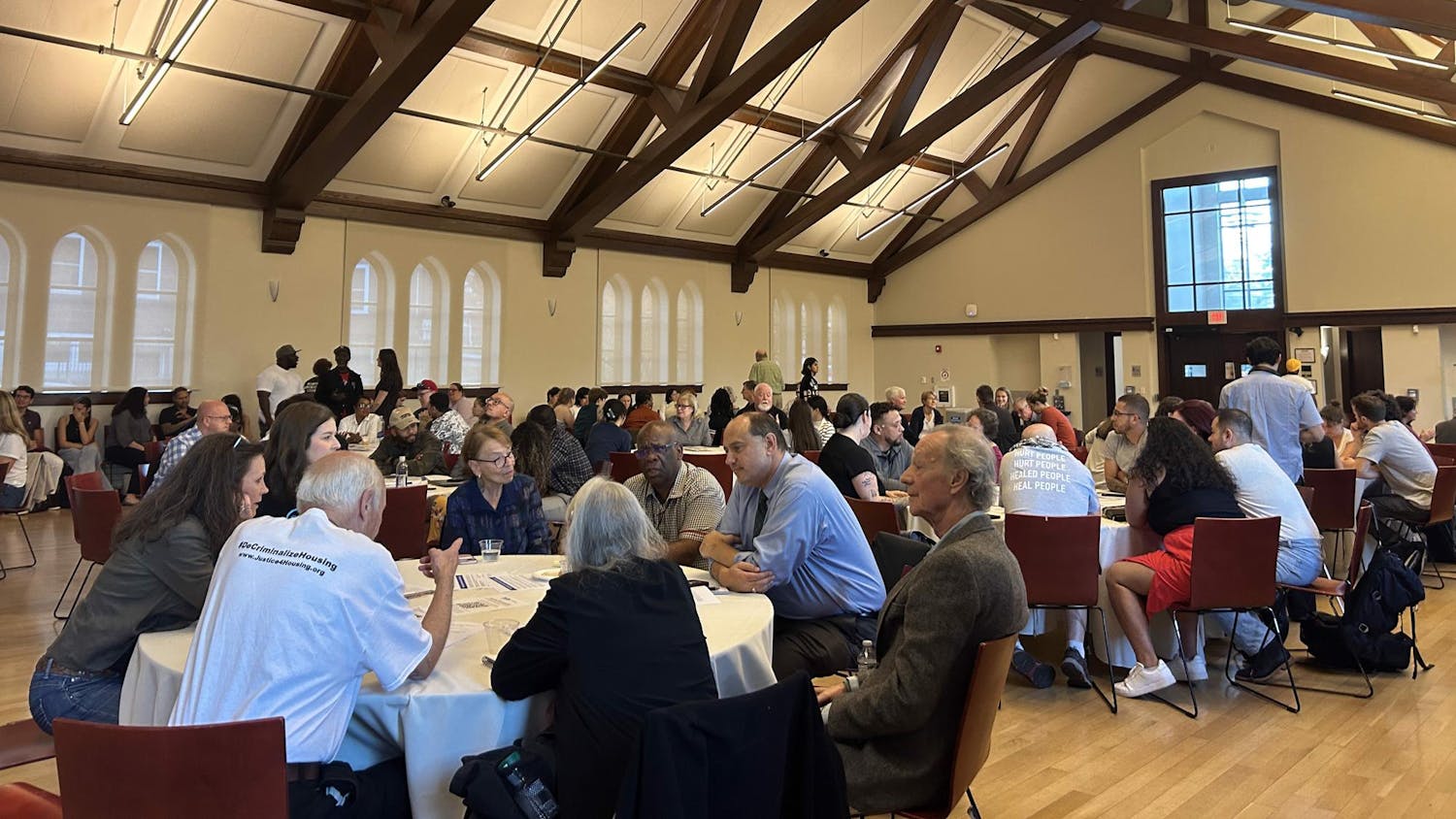Ahead of the American Psychiatric Association's (APA) annual meeting in May, some professors at the Tufts School of Medicine have said the current format of symposia are ripe for potential conflicts of interest.
The professors have pushed for reforms to the current system, under which pharmaceutical companies pay an "education company" that arranges the courses for the meetings. Although the companies are not paying speakers directly, they still have a hand in the process, which raises ethical concerns.
"It goes from the drug company to a medical education company and then that money is paid, either by the medical education company or by the APA, directly to the faculty," Daniel Carlat, an assistant clinical professor of psychiatry at the School of Medicine, told the Daily.
Carlat was once paid to do promotional talks for drug companies, but no longer is.
These drug company-backed faculty members are pervasive, according to Jerome Kassiser, a professor at the School of Medicine. "If you go to a major medical meeting, there are invariably talks at breakfast, at lunch and at dinner by company-paid speakers," he said.
Sheldon Krimsky, a professor of Urban and Environmental Policy and Planning, said that the current arrangement does not work.
"Continuing-education seminars simply should not be controlled and funded by the pharmaceutical industry, because they control the agenda and who speaks," Krimsky said.
Many pharmaceutical companies contract out faculty for talks and courses at continuing medical education (CME) seminars around the country, according to Krimsky.
"They usually promote the drugs of those pharmaceutical companies," Krimsky said of the faculty, adding that he believes there must be another way to finance the studies to avoid yielding control to the pharmaceutical companies.
Carlat echoed this sentiment, claiming that symposia can be biased in favor of the company sponsoring the product.
"The more subtle the bias in these courses is, the less likely the doctors listening to the lectures are going to be alert to the possibility of bias," he said. The most common bias he sees is when speakers will deemphasize the dangers of side effects.
According to Kassiser, company leadership will sometimes discourage speakers at CME seminars from talking negatively about one of their particular products.
"There are actual instances in which speakers for a drug company that began to talk about the negative aspects of one of the drugs of the company were threatened by the senior vice president of the company," Kassirer said. "That happened in the [cases] of Merck and Vioxx."
Carlat's arrangement with pharmaceutical companies was different though, as he was paid directly by the company.
"The understanding I had with the drug companies was much clearer," he said. "They were paying me money to talk about their product, whereas, in the CME talks, you're not allowed to do that." Carlat said. Even though on paper the companies are prohibited from telling faculty members what to talk about, the rules are much more ambiguous, he said.
Carlat quit giving promotional talks for drug companies "because I felt I was beginning to push some ethical boundaries in terms of what I was saying and what I was not saying," Carlat told Reuters recently.
An APA task force, with which Carlat is involved, is currently looking at CME seminars as well as how the pharmaceutical industry makes payments to the APA.
"Probably the most prominent issue that has come up," though, Carlat said, "has involved these industry-supported symposia."
Some, such as Krimsky, see the issue of CMEs as only one part of a wider, more dangerous influence pharmaceutical companies have over the healthcare industry. Potential conflicts of interest, he said, include the lack of "a firewall between the people who make drugs and the people who evaluate them" and pharmaceutical companies' giving of gifts and certain types of compensation to doctors.
The APA's board of trustees intends to vote at a meeting next month on issues relevant to CMEs, according to Carlat, though he remains pessimistic about any immediate reforms.
"Often they take these things up, they discuss them to death and then they put them off for another meeting," he said.
Medical symposia have made progress in reducing conflicts of interest, however, Carlat said. For example, the practice of drug companies paying for airfare and hotel accommodations to symposia -- sometimes seen as vacations -- is no longer allowed for U.S. physicians under American Medical Association guidelines.





